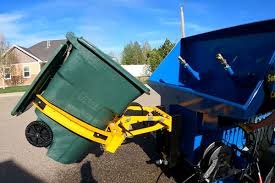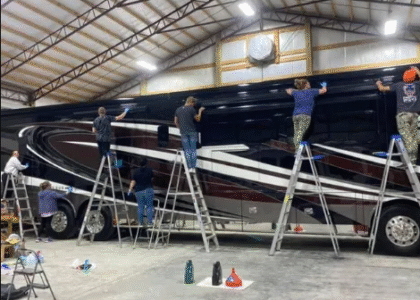Computer Numerical Control (CNC) machining is a key enabler of precision manufacturing — from aerospace parts and medical components to automotive parts and consumer electronics. In India, Bangalore (also “Bengaluru”) has become one of the leading hubs for CNC machining, thanks to its industrial ecosystem, engineering talent, and increasing demand for high‑precision parts both domestically and for export. In this blog, I’ll explore what makes Bangalore a strong choice for CNC machining, key players, market trends, challenges, and guidance for working with CNC shops there.z
Bangalore: Why It’s a CNC Machining Hub
There are several factors that position Bangalore strongly for CNC machining:
- Strong Engineering Base & Talent Pool
Bangalore is known as the “Silicon Valley of India” due to its IT and startup explosion, but it is also rich in engineering colleges and technical institutions producing skilled mechanical engineers, tool & die makers, and machinists. This helps CNC shops access trained personnel for programming, setup, quality control, maintenance, etc. - Existing Industrial Infrastructure
There are industrial zones, workshops, and ancillary suppliers (raw materials, tooling, coolant, fixtures) close by. This reduces lead times for procurement of inputs like metals, cutting tools, and supplies. Access to reliable power, roads, transportation (including proximity to ports / airports) also helps. - Growing Demand from Multiple Sectors
Sectors such as aerospace, defence, electronics, automotive, medical devices, renewable energy, and precision instrumentation have been growing in India, and Bangalore is central or close to many OEMs, R&D centres, and design houses. This drives demand for precision parts and small to medium batch fabrication. - Cost Advantages
Relative to many western markets, costs of labour and overhead in Bangalore are lower (while quality capability is increasingly high). For many foreign companies, outsourcing or partnering with Bangalore‑based CNC shops can offer cost‑effective part production, especially for prototype or small/medium series. - Supportive Policy & Ecosystem
Indian government’s initiatives for Make in India, manufacturing clusters, and incentives for defence / aerospace manufacturing help. Also, many shops are adopting modern machinery, CAD/CAM software, quality systems, which makes them more attractive for global customers
Types of CNC Machining Offered in Bangalore
CNC machining isn’t monolithic; shops differ widely in their capabilities. Here are typical services you’ll find in Bangalore:
- CNC Milling & Turning – 3‑axis, 4‑axis, 5‑axis milling; turning with live tooling; lathe work.
- CNC Drilling, Tapping, Boring – Precision holes, thread cutting, etc.
- Grinding, Deburring, Finishing – Surface finishes; low roughness; polishing.
- EDM (Electrical Discharge Machining) – Wire EDM, sinker EDM (for molds, tools).
- Prototyping vs. Production Runs – Shops that do single prototypes/samples vs shops equipped for batch work.
- Material Variety – Aluminium, steel, stainless steel, titanium, plastics, engineering alloys, sometimes exotic materials.
- Post‑processing / Finishing – Heat treatment, surface coatings / anodizing / powder coating / plating, inspection via CMM (Coordinate Measuring Machine).
Key Players & CNC Machine Shops in Bangalore
While I don’t have an exhaustive up‑to‑date directory, here are examples of major players and types of shops in Bangalore, plus how they are evolving. (Note: Since public info varies, this is illustrative.)
- Several shops are serving aerospace / defence clients, requiring high tolerances, special alloys (e.g. titanium or high‑strength steels), and stringent quality systems (sometimes NADCAP, AS9100 etc.).
- Others focus on electronics / instrumentation – small complex parts, often with tight tolerances, fine finishes.
- Some specialize in tool & die / mould making, which often requires multi‑operation machining and finishing.
- There are also contract manufacturers and job shops that cater to startups or small OEMs requiring prototypes or pilot batches.
Examples (hypothetical names/types, since detailed public listing is spotty):
- Precision Tooling Services – offering milling, turning, EDM, finishing for automotive & aerospace.
- TechParts Machining – specializing in small precision parts for electronics.
- RapidPro Prototypes – focused on quick turnaround prototyping.
- Advanced Alloys Co. – handling special materials like titanium or Inconel.
- If you want, I can pull together a current list of shops in Bangalore with their contact / capability summary
Market Trends in Bangalore’s CNC Machining Sector
These are some of the current trends shaping how CNC machining is evolving in Bangalore:
- Adoption of Multi‑Axis and Hybrid Machinery
Shops are investing in 4‑axis / 5‑axis milling machines, CNCs with live tooling, and hybrid machines that combine additive/subtractive operations to handle more complex geometries. - Prototyping & Rapid Turnaround
Because of startups, R&D centers, product development labs, etc., there is growing demand for prototypes or small batches with fast delivery. - Higher Quality & Certification Expectations
International buyers increasingly demand tighter tolerances, certified material traceability, quality management systems (ISO 9001, AS9100, etc.), and inspection equipment like CMM. Shops are responding by upgrading their QC processes. - Use of New Materials
Beyond mild steel or aluminium, more work is being done on lightweight, high‑strength alloys, exotic materials, and composites. Also, more finishing requirements (anodizing, coatings) to meet performance and aesthetic demands. - Automation & Digital Tools
Use of CAD/CAM software, solid simulation tools, nesting software, tool‑path optimization. Also, integration of machines with digital monitoring (some shops adopting IoT, production tracking etc.). - Sustainability & Waste Reduction
Because materials and power costs are non‑trivial, shops are increasingly focusing on reducing scrap, optimizing tool life, recycling, and energy efficiency. - Export & Global Collaboration
More Bangalore shops are supplying components for export or working with international clients. This pushes expectations in quality, consistency, packaging, documentation, and logistics.
Strengths & Competitive Advantages of Bangalore CNC Shops
To summarize what Bangalore shops tend to do well:
- Cost-effective skilled labour, especially for programming, setup, and QC.
- Proximity to supply chains for materials, tools, coatings, logistics.
- Flexibility: many job shops are willing to work on small batches or prototype parts.
- Willingness to invest in new machines, software, training.
- Strong engineering culture: given presence of R&D, startups, electronics, aerospace, etc., there is often understanding of precision, design, and collaboration.
Challenges & Limitations
Bangalore‑based CNC machining shops are strong, but not without challenges. Understanding these helps when selecting a partner and anticipating issues.
- Quality Variability
Not all shops maintain the same precision or consistency. Tolerance drift, finish quality, or documentation may vary. Sometimes local expectations or norms are lower than what international customers require. - Lead Time & Capacity Constraints
When demand is high, shops may be overloaded, leading to longer lead times. Delays in procurement of raw material, tooling, or due to import duties can also impact time schedules. - Technology Gaps
Some shops may still use older machines, less‑advanced CAM software, or have limited multi‑axis capacity. For highly complex parts, very tight tolerances, or exotic materials, only a few shops may be capable. - Supply Chain / Material Availability Issues
Special materials (e.g., certain exotic alloys, high‑grade stainless steels, titanium) may have lead‑times, especially if imports are needed. Any delays in customs, duty, or vendor supply can ripple into project delays. - Logistics & Export Challenges
For clients outside India, issues of packaging, customs, shipping, documentation, and consistent quality upon arrival can be significant. Shops may need to adapt to international shipping norms. - Cost of Maintaining High Standards
Certifications, inspection equipment (CMM, etc.), maintenance and calibration, tool wear — all of these require ongoing investment. Not all job shops may have strong financial capacity to maintain high capital expense. - Talent Retention
Skilled machinists, tooling specialists, QC engineers are in demand. Retaining them, training them, avoiding turnover is a challenge.
What Clients Should Look for When Choosing a CNC Shop in Bangalore
If you are an OEM, startup, or designer considering having parts machined in Bangalore, here are things to check and questions to ask:
- Capabilities & Machinery
- Ask: what axis machines do they have (3‑axis, 4, 5)? live tooling on lathes? milling, turning, EDM capability?
- What is their maximum and minimum tolerance? Surface finish capabilities.
- Material & Finish Handling
- Can they machine the materials you need (stainless steel, titanium, super‑alloys, plastics, composites)?
- What finishing services they provide (anodizing, coatings, plating, polishing).
- Quality System / Certifications
- Do they have ISO 9001? For aerospace, AS9100? Any inspection equipment (CMM, optical measurement, etc.)?
- How they handle first article inspection, reporting, traceability of materials.
- Turnaround Time & Logistics
- How long is their lead time for prototype vs batch orders?
- How they handle material sourcing (local vs imported)?
- Packaging and shipping especially if parts are to be exported.
- Cost Structure / Quotations
- Transparent costing: machining hours, tool‑wear, material cost, shipping, finishing.
- Whether quotes include ALL charges or there are hidden ones.
- Sample / Pilot Order
- Ask for a sample part or small batch to test both quality and the process (communication, timeliness, packing).
- Communication & Engineering Collaboration
- How responsive are they? Are they willing to work with your drawings / CAD / provide suggestions for manufacturability?
- Do they do design feedbacks, tolerance discussions, etc.
- Reputation & References
- Check past work, client testimonials, references.
- See if they supply international clients; success in delivering quality elsewhere is a good sign.
- Cost of Ownership & long‑term reliability
- For repeat orders, consider whether the shop is consistent; whether tooling is maintained; whether they keep records; whether they invest in maintaining calibration and machine health.
Case Study / Example (Hypothetical)
To make things more concrete, here’s a hypothetical example of working with a CNC shop in Bangalore, illustrating both success and things to watch out for.
- Client: A small startup designing a medical device, needing aluminium housing (batch of 50 pieces), tolerance ±0.05 mm, finish anodized, with holes, slots, threads.
- Selected Shop: A mid‑sized CNC shop in Bangalore with 5‑axis milling, good finishing capabilities, ISO 9001 certified, experience with small batches.
Process steps:
- Client shares detailed CAD drawings and material spec.
- Shop reviews and suggests slight design changes to reduce setup time (e.g. combining holes, reorienting some faces to avoid repositioning).
- First article sample is made, inspected, feedback given; minor corrections made.
- Batch production begins. Parts packed properly, finished, inspected via CMM, shipped.
Outcomes:
- Lead time is reasonable (prototype in 1 week, full batch in 3‑4 weeks).
- Cost comes out lower than comparable western shop shipping to India, even with shipping/air freight.
- Quality is acceptable; tolerances met, finish good; but there is minor variation edge‑to‑edge on one part — causes small rework.
Lessons:
- Importance of first article inspection.
- Necessary to specify both geometric tolerances and surface finish.
- Need to allow for small variation even with high standards.
- Confirm packaging and transport method so parts arrive undamaged.
Future Outlook
What does the future look like for CNC machining in Bangalore?
- Continued investment in higher‑axis, more precise, more automated machines.
- Greater adoption of digital manufacturing tools: CAD/CAM, simulation, machine‑monitoring, IoT.
- More shops getting certifications needed for aerospace, medical, export quality.
- Increase in export‑oriented work. As international buyers look for cost‑competitive, high‑quality sourcing, Bangalore shops will find more opportunities.
- Emphasis on sustainability: efficient use of coolant, reducing waste, recycling, energy‐efficient machines.
- Possibly more clustering: zones or parks focused on precision machining, tooling, and associated services, so that support functions are co‑located.
Conclusion
CNC machining in Bangalore offers a compelling blend of skill, cost competitiveness, flexibility, and growing quality and technology capability. For many businesses — startups, OEMs, or international firms — working with Bangalore‑based CNC shops can be very attractive, especially for prototypes, small/medium batch work, and even more demanding precision components.
However, success depends on carefully selecting the right partner: check their machine capabilities, materials & finish handling, quality systems, communication discipline, and do a pilot order or detailed sampling. Being explicit about tolerances, finishes, delivery, documentation also helps avoid surprises.visitusat–https://zeometrix.com/cnc-machining-in-bangalorehttps://zeometrix.com/cnc-machining-in-bangalore






